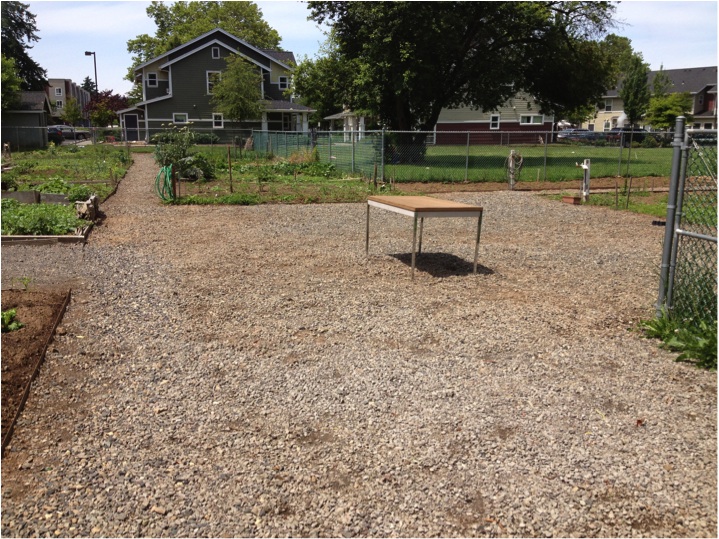Tags
"community"
St. Pauls Lutheran Church: Ava Kamb, Winter Shadow 2016
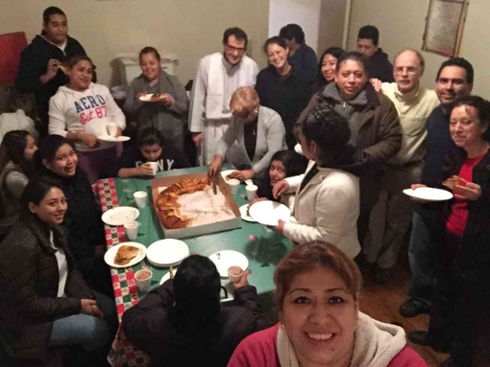
It would be impossible for me to define an average day during my externship in Brooklyn, New York this past January, as every day I engaged in activities as diverse as writing liturgy to learning how to handle a cordless drill. I shadowed Ben McKelahan, a Reed alumnus who works as a Lutheran pastor in Williamsburg, Brooklyn, serving both a Spanish-speaking immigrant population and Parables, a young adult artistic congregation. Part of his job involves bridging the two communities (who share the space of St. Paul’s Lutheran Church) in a neighborhood that is undergoing gentrification.
This externship gave me the opportunity to develop my understanding of religion in both an academic and a personal sense. At the start, I found church life foreign and abstract, as I did not grow up religious and my understanding of Lutheranism came from a movie and a couple of texts I read before flying to New York. But throughout the week I was able to learn quickly through lengthy conversations with Ben and through working with the various communities that make up the church in Brooklyn. While studying the bible with Lutheran pastors, shaking maracas at a Parables spiritual dance party, and sharing chocolate de maíz with immigrants from the Dominican Republic as they described their favorite psalms, I began to understand what it means to be part of the Lutheran church community, and each day I was struck by the warmth and energy of everyone with whom I interacted. I was curious to see how God becomes present in people’s day-to-day lives, and I think I saw it best in the relationships individuals shared with one another.
Although my future career plans are still hazy at this point, this shadow opportunity unequivocally made me a better student of religion. I have always loved traveling internationally because it gives me the opportunity to grow, explore, and challenge myself in new situations and cultures, and this trip reminded me that I can have these same experiences in my own backyard (so to speak) if I am willing to step outside of my comfort zone. I want to extend a huge thank-you to Ben for allowing me to shadow him and putting up with my endless questions, to Hannah for offering me a bed in her apartment, and to the other communities I spent time with, who welcomed me into their conversations, homes, and lives however briefly – I am very grateful.
Continue reading St. Pauls Lutheran Church: Ava Kamb, Winter Shadow 2016
We Love Clean Rivers Environmental Stewardship Internship: McGill Lawrence Internship Award, Joshua Tsang
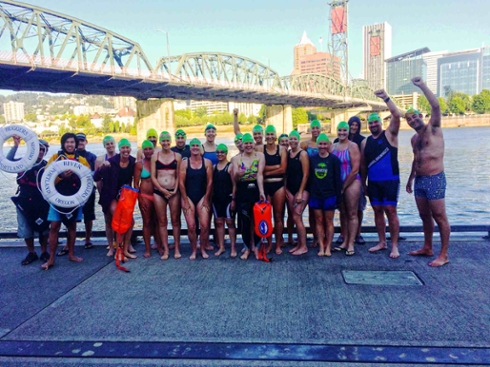
Recipient of the McGill Lawrence Internship Award, Joshua Tsang '18, is combating water pollution through water quality monitoring of rivers around Portland with the nonprofit organization We Love Clean Rivers.
Hands-on and Hands-off River Scrubbing:
Continue reading We Love Clean Rivers Environmental Stewardship Internship: McGill Lawrence Internship Award, Joshua Tsang
Reed Winter Externship Reflections 14: Number twenty-five, Saturday Academy, Jeremy Cosel
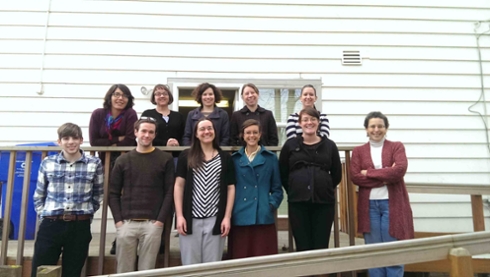
Over my winter break, I went to visit the Saturday Academy administrative office located on the University of Portland's campus, and it was quite fun! I met some outstanding individuals who work not just for a living, but in order to provide quality academic programs for kids all across Portland and the greater Oregon area. That's the benefit of being a non-profit: you do work that is relevant to your interests, but also participating in a group that makes quite a meaningful impact on the community. During my weeklong visit, I helped staff revise internship descriptions provided by several dozen major companies across Portland, a part of Saturday Academy's Apprenticeships in Science and Engineering (ASE) program. Thinking about how to best incorporate a diversity of high school students regardless of their gender or socioeconomic status is something I have never considered, and was a thoughtful challenge for me. With an interest in Technology and Education, I learned about all the hard work that goes into organizing the hundreds of educational opportunities Saturday Academy provides, and was proud to assist with tasks in the background in order to provide a great experience for the families signed up with Saturday Academy this year.
Continue reading Reed Winter Externship Reflections 14: Number twenty-five, Saturday Academy, Jeremy Cosel
Reed Winter Externship Reflections 14: Number Twenty Two, Saturday Academy, Sam Underwood
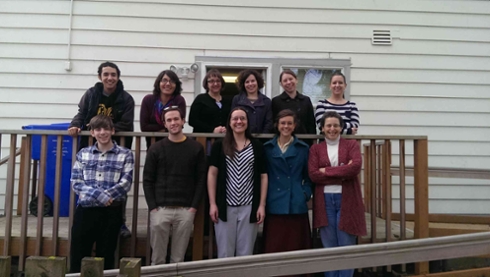
I participated in a weeklong externship with Saturday Academy, an educational non-profit established in 1983 and based in Portland. Saturday Academy’s mission is to provide supplemental learning opportunities to kids from second grade through high school. Saturday Academy organizes over five hundred classes a year, all taught by experts from the community. Saturday Academy states that their emphasis is on science, technology, engineering and math—but a quick peek at their website shows a vast array of classes in all fields, from writing to engineering to acting. This was information I knew as I headed to my externship on the first day. What I didn’t know was that the entire organization is run by just a handful of people. Just thirteen, to be exact. Over my week at Saturday Academy I observed an efficient, enthusiastic, and creative team working hard to providing learning opportunities to bright young students.
My first task as an extern involved Saturday Academy’s Apprenticeships in Science and Engineering (ASE) program. The ASE program matches up promising high school students with industry mentors. The students spend the summer in labs or in the field, working with their mentors. In January, the industry mentors had just submitted blurbs describing the work their high school-aged interns will be doing this coming summer. In addition to proof-reading these blurbs, I vetted their wording to make sure subtle gender bias wasn’t implicit in the language chosen by the writers. As it turns out, gender bias in job descriptions is a persisting issue and data indicate this wording-bias contributes to women being underrepresented in STEM fields. Saturday Academy is deeply dedicated to providing opportunity to all children, including those historically underrepresented in STEM.
Jeri Janowsky, Saturday Academy’s director, told me that a goal of Saturday Academy is to frame education as something that doesn’t have to end when the school day ends, but rather, to frame education as a dynamic, continuing experience throughout life. I strongly embrace this perspective, and Saturday Academy is embodying the idea that education can take place even after the last school bell rings. My time at Saturday Academy was encouraging and motivational—seeing an organization with such an important message flourishing gives me (otherwise absent) high hopes for the future of education in the U.S.
Continue reading Reed Winter Externship Reflections 14: Number Twenty Two, Saturday Academy, Sam Underwood
Reed Winter Externship Reflections 14: Number Eighteen, Our House of Portland, Florence Randari
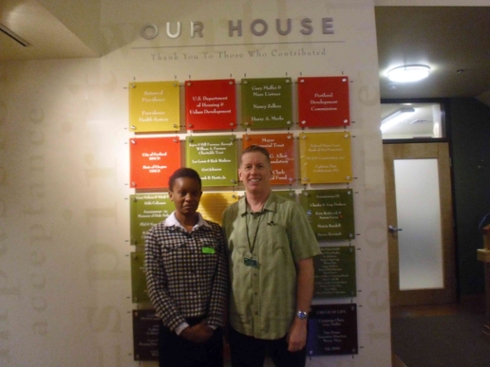
My name is Florence Randari, an international freshman student from Kenya. I am a prospective Math Economics major planning to join Business School after Reed and start a career in the financial services field. Through the help of my career adviser, Brooke Hunter, I managed to get a winter externship with a non-profit organization called Our House of Portland, to learn more about running and managing of non-profits.
Our House of Portland is a non-profit organization that provides healthcare, housing and other vital services to low income people living with HIV/AIDS. My host was Allen Brady who is the Director of Business services in the organization. Allen took me through a detailed information session on how he manages the finances of the organization, writes a budget and prepares an Annual Financial Statement for the organization among other duties. Being a non-profit, I was interested in knowing how they get the large amounts of money to offer free services to the 14 clients in the Neighbourhood Housing and care program as well as provide food banks, clothing and household items to over 700 people living with HIV/AIDS.

Continue reading Reed Winter Externship Reflections 14: Number Eighteen, Our House of Portland, Florence Randari
A Summer with Architecture for Humanity: Sarah's Final Post

At the chapter meeting this month, my summer position with Architecture for Humanity Portland officially came to an end. As the meeting’s featured speaker, I presented my accomplishments as Chapter Development Coordinator over the past 10 weeks. Looking back, it’s unsettling how quickly the summer flew by, and I find myself wondering how I managed to fit so many significant experiences within such a short period of time.
Since my last blog post, I’ve helped AFH Portland grow considerably as an organization. Working closely with Becca, the Director of Membership and Communications, I created a comprehensive Chapter Manual to guide the future operations of our chapter. Hopefully, the Manual will serve as a resource to facilitate the success and sustainability of chapter activities long after the current directors are gone.
Using a draft manual written by AFH New York as my model, I created my own 52 page (and growing) document that contains an overview of chapter organization and roles, a project toolkit, resources for information management and chapter finances, a guide to grants and grant-writing, and a strategic plan for future development. Essentially, the Chapter Manual integrates the various components of my work this summer within one cohesive document. Surprisingly, no other chapter to date has created a complete operational manual, so my work could potentially serve as a resource for AFH chapters nationwide (which is really exciting!).
Continue reading A Summer with Architecture for Humanity: Sarah's Final Post
Humanitarian Design 2: Empowering Portland Through Community Oriented Architecture, Presidents Summer Fellowship
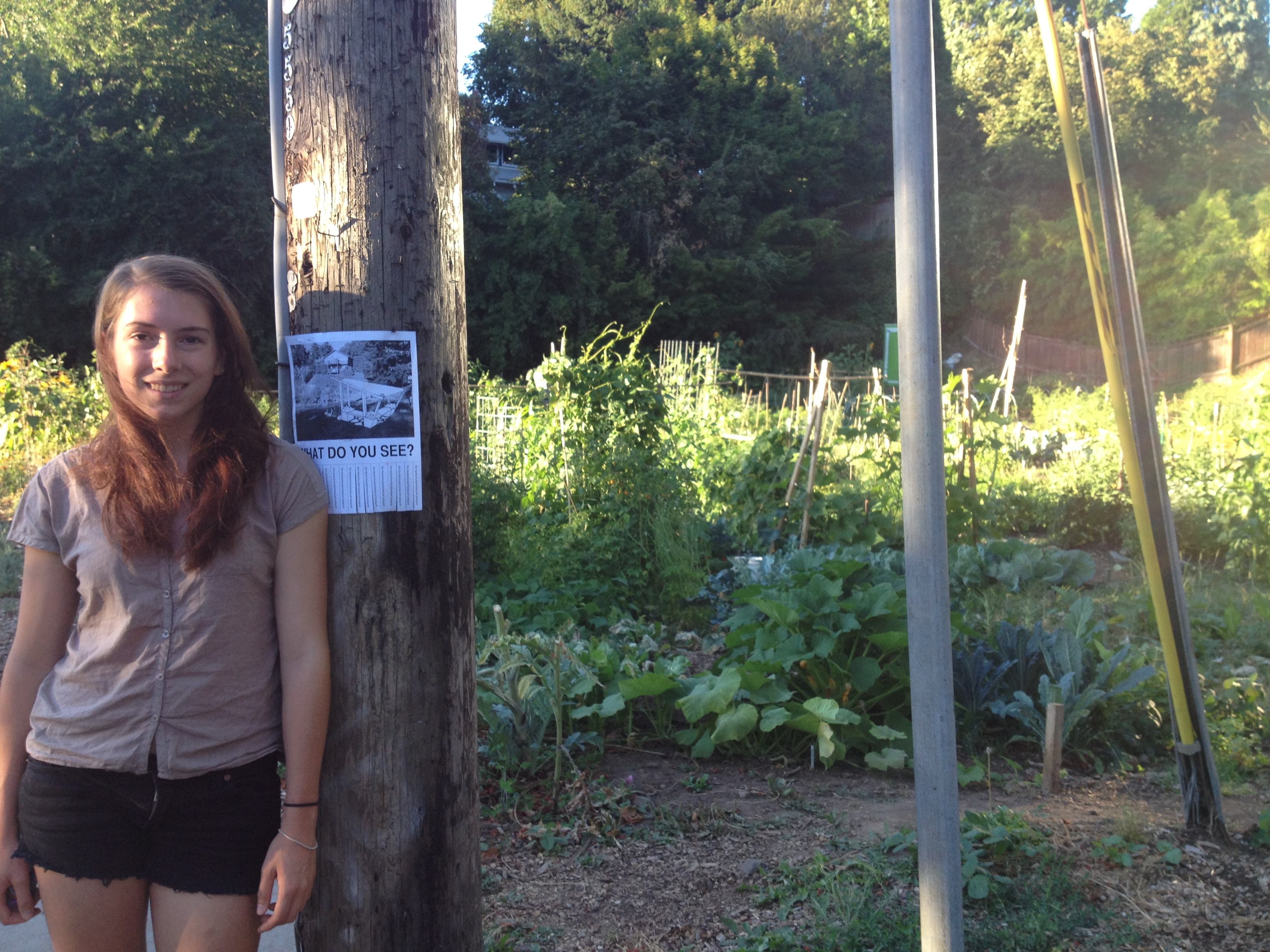
At some point during the past few weeks, all three tracks of my summer project picked up simultaneously, and my days have been a whirlwind ever since. As I write this post, I can however reflect upon one aspect of my summer project that recently wrapped up.
Today, I attended the last meeting of my five-week architecture course at PSU. A very basic introduction, the course touched upon a variety of subjects that shape architectural theory and practice. Lectures, videos, and discussions covered topics ranging from the roles of fashion, technology, and consumerism in building design, to deeper questions regarding how design generates and communicates meaning. The course—though not the technical education I had hoped for—presented an intriguing and occasionally disheartening window into the challenging, complex, and struggling field that is contemporary architecture.
To say that my professor is disillusioned with current architectural practice would be an understatement. Because my professor believes that architecture has lost sight of its fundamental values, he challenged my classmates and I to practice deliberate and ethical architecture. In light of everything, good and bad, that I learned about architecture, my desire to pursue a career in the field remains intact. Now, I feel better equipped to attempt a postgraduate degree, and no matter where I end up, to make sure that I keep the fundamentals of architecture close at hand.
Continue reading Humanitarian Design 2: Empowering Portland Through Community Oriented Architecture, Presidents Summer Fellowship
Humanitarian Design: Empowering Portland through Community-Oriented Architecture, Presidents Summer Fellowship
Halfway through my freshman year at Reed, I decided, after much deliberation, to major in studio art. My initial reluctance stemmed from a fear of the impractical and individualistic nature of an arts-oriented career, which I believed would limit my ability to make a tangible difference in the lives of others. That is, until the moment I seriously reconsidered my lifelong interest in architecture. Suddenly, years spent meticulously constructing houses in The Sims and wandering unknown neighborhoods ogling Craftsman bungalows became the solution to my dilemma. I realized that, as an architect, I can utilize my artistic skill and appreciation of the built environment to effect meaningful change in the world. Post-Reed, I plan to complete a masters program in architecture and embark upon a career in humanitarian design. For the moment, I am trying to gain the experience and knowledge necessary to facilitate my vision.

